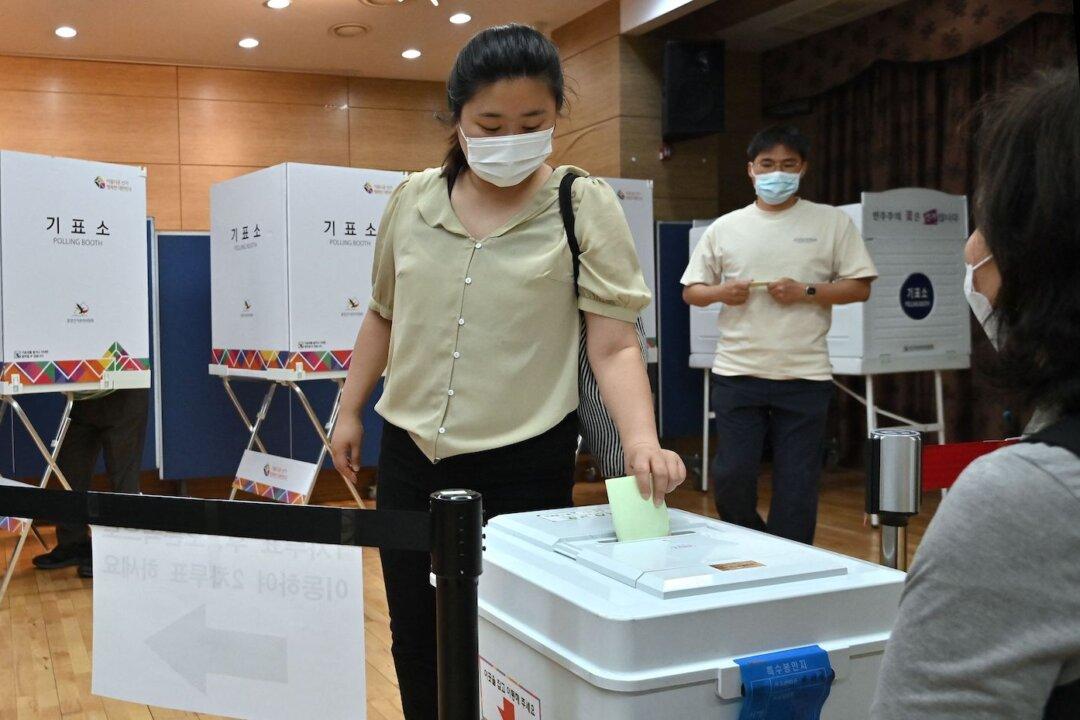South Korean policymakers are considering tightening the rights of foreigners to vote in local elections following concerns of Chinese Communist Party (CCP) influence.
South Korea Considers Curb on Voting Rights of Foreign Residents to Deter Communist China From Meddling in Local Elections
In South Korea, 80 percent of foreign resident votes are in Chinese hands

A woman casts her vote for nationwide local elections to elect mayors, governors, local council members and regional education chiefs at a polling station in Seoul on June 1, 2022. Jung Yeon-je/AFP via Getty Images




